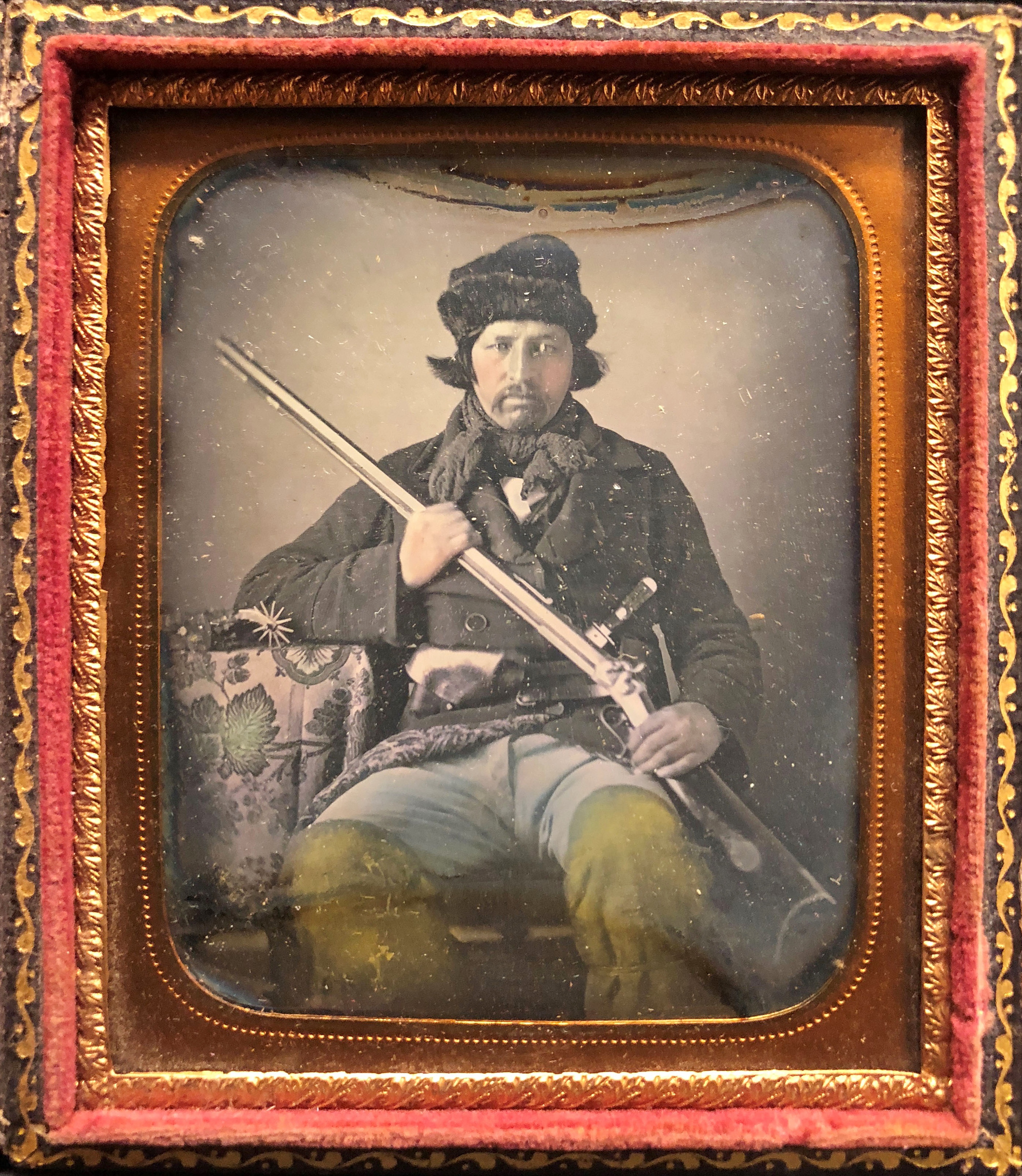
Isaac Brown was the son of Adam Dekyuhkǔyúte’ Brown Jr. and Teresia Sanders. The younger brother of Nancy Quindaro Brown Guthrie, he came to Kansas with the Wyandots in 1843. Brown’s home was on the southeast corner of Fourth Street and State Avenue, where he lived with his wife, Eliza.
Brown was elected Wyandot ferryman for the year 1851 by a joint session of the Wyandot Tribal Council and the Legislative Committee. He served for a time as the national jailer but was accused of extortion, and the Wyandot Tribal Council replaced him with Silas Armstrong in 1855. Brown was also a merchant and turned his four-room log cabin into a hotel frequented by many travelers. In the spring of 1856, the ice in the Kansas River broke up early and shoved out on the shore numerous catfish, which were cooked for the boarders. They were plentiful, inexpensive food, and the proprietor of this first hotel in Wyandotte cooked up so many, that his guests dubbed the house "The Cat-fish Hotel."
Under the Treaty of 1855, when he was 29, Brown became a United States citizen. Years later he found it impossible to live as such, and believing to have been cheated out of his property, he requested to resume his tribal relations. He eventually moved to the Wyandot reservation in Oklahoma. In this reproduction of the original daguerreotype, he is dressed for a bear hunt.